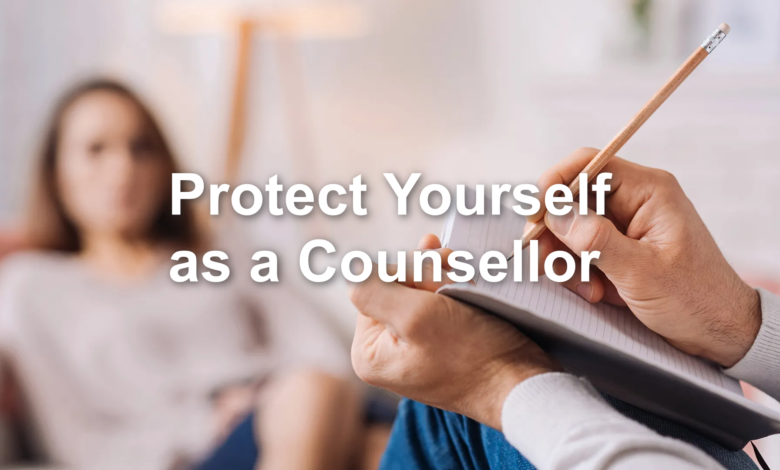How to Protect Yourself as a Counsellor

Whether you’re just starting as a counsellor or you’ve been practising for a while, you must keep yourself safe. Your role is designed to look after the mental wellbeing of your clients, but protecting yourself will help you provide useful, meaningful counselling and also look after your health.
To help you protect yourself, here are some tips that provide practical solutions.
Read More: The Major Types of Healthcare Fraud and Abuse
Supervision
As a counsellor, you’ve likely chosen this career path because you want to help people. But it’s easy to take on clients’ situations – especially as you spend the day listening to them and trying to guide them through the mental health concerns and other issues they’re facing.
Even the most established counsellors can become weighed down by their clients’ circumstances, so it’s important that you go to regular supervision sessions. These help counsellors check in with more experienced therapists who will offer guidance and self-care tips. This process gives you the chance to separate yourself from your clients’ circumstances, improving your counselling skills in the process.
Paperwork
A lot of paperwork goes into counseling. Keeping track of different clients and ensuring your qualifications are up to date and in order is essential if you want to run an organised practice. It’s likely to become even more important as you take on more patients due to the high demand.
Having updated paperwork can also protect you should something go wrong. If you need to defend yourself, being able to show that your notes are in order and tally with your client’s information can be hugely beneficial. Additionally, having a form of insurance for therapists could protect you if anyone makes a claim against you.
Timing
You’re going to be dealing with a lot of heavy information. As a counsellor, you’re going to hear about mental health concerns and heavy-hitting subjects. It can be a lot.
Allotting time between patients to regroup will allow you to make the relevant notes about the previous patient and give you a breather before you move on to the next. Plan out your sessions so that you have 15 to 30 minutes to yourself.
Read More: What to Do If You’re Injured in a Bicycle Accident
GDPR
Counsellors deal with highly confidential information. UK GDPR rules apply to businesses and professions across the country, but the nature of your role means that it can be even more detrimental if sensitive details fall into the wrong hands.
Make sure that you and your staff are fully trained in GDPR. Additionally, introduce systems so that computers and notebooks are safely stored throughout the day.
Boundaries
All counsellors are trained to put boundaries in place before, during and after each session. This is essential. You’re discovering your clients’ innermost thoughts and feelings and they’re likely to feel close to you.
Keeping things professional will go a long way towards protecting yourself. For instance, stick to the allotted timings for each session and never give clients your personal information. By doing this, you’re covering yourself and looking after them.











